Partner Gives Ultimatum - “Get Rid of Your Cat or We Can Never Live Together”
Today, we’ll be looking at an emotional online post where someone (OP) shared a relationship dilemma that pits love for their partner against commitment to their pet.
OP has been dating for a while, and they genuinely see a future together. But their partner has drawn a hard line: either the cat goes, or they can never live together.
The cat in question isn’t just any pet. It’s a rare breed that OP waited years to get on a breeder’s waitlist. It cost significant money and represents years of anticipation finally fulfilled.
Before they started dating, OP had already gotten the cat. At the time, their now-partner was a friend and seemed fine with it.
But when they started dating, their partner developed an irritating allergy towards the cat, even to the point of having to take medication when visiting.
As time went on, OP’s partner decided they don’t see themself living long-term with the cat under any circumstance.
They’ve stopped coming to OP’s home because the allergies are too much to bear.
In addition, they’re asking OP to commit to giving up the cat right now, before they even have concrete plans to move in together. This is to remove any uncertainty from their future.
The suggestion hit OP hard, and they’ve offered multiple solutions to solve the problem. This includes allergy shots, daily sheet washing, air filters, and even keeping the cat out of the bedroom.
Nothing has swayed their partner, who views pets as just pets and thinks it shouldn’t be difficult to let go.
OP sees the cat as family, almost like a child they’re responsible for.
They’re genuinely torn because they understand their partner’s concerns are valid, but they also know giving up the cat would cause real emotional damage.
Check out the full story below.
Let’s dig into the details

OP’s partner is allergic to cats and has asked them to get rid of their cat before they can move in together
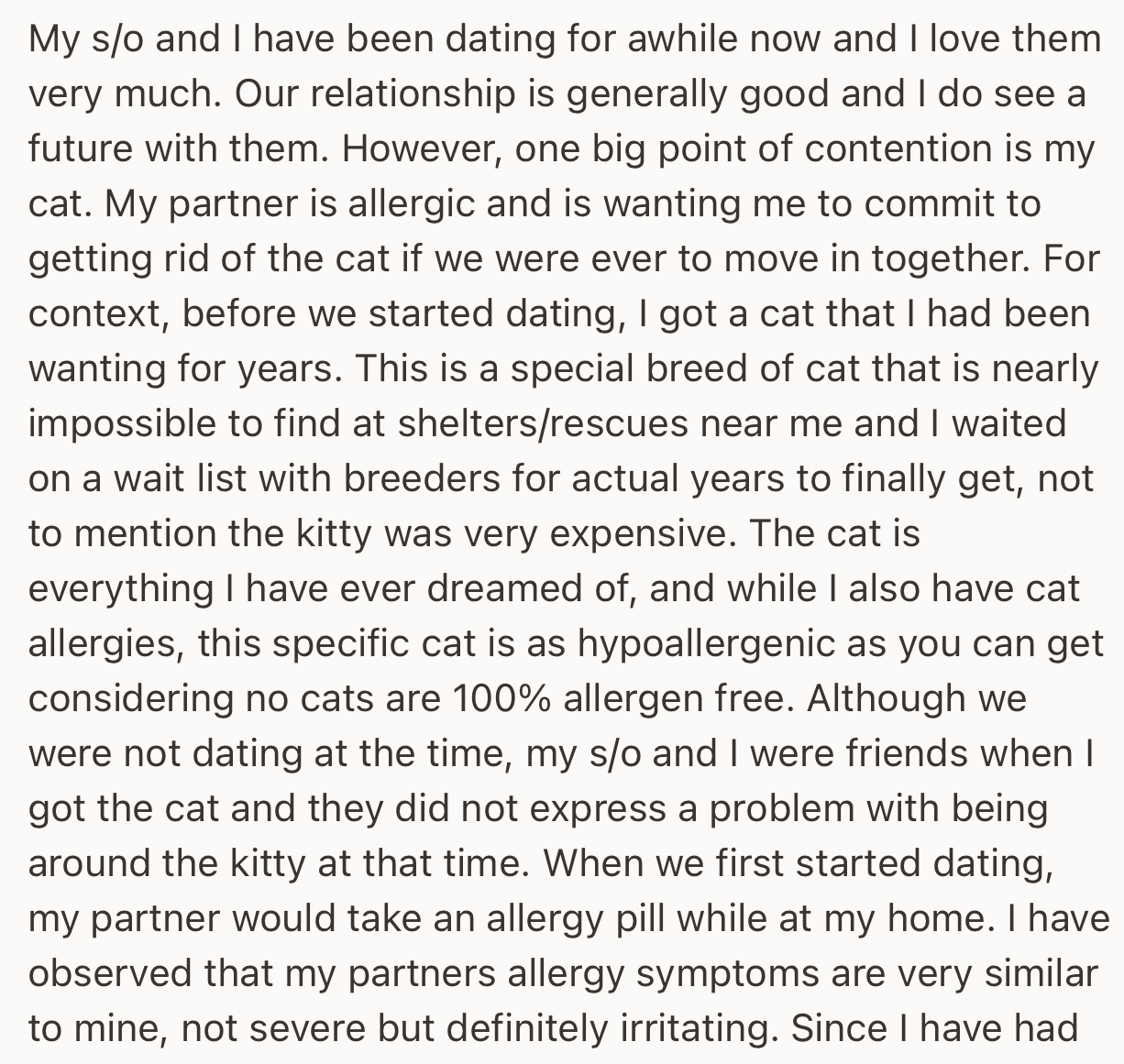
OP’s partner has also stopped visiting their home due to the constant allergic reactions
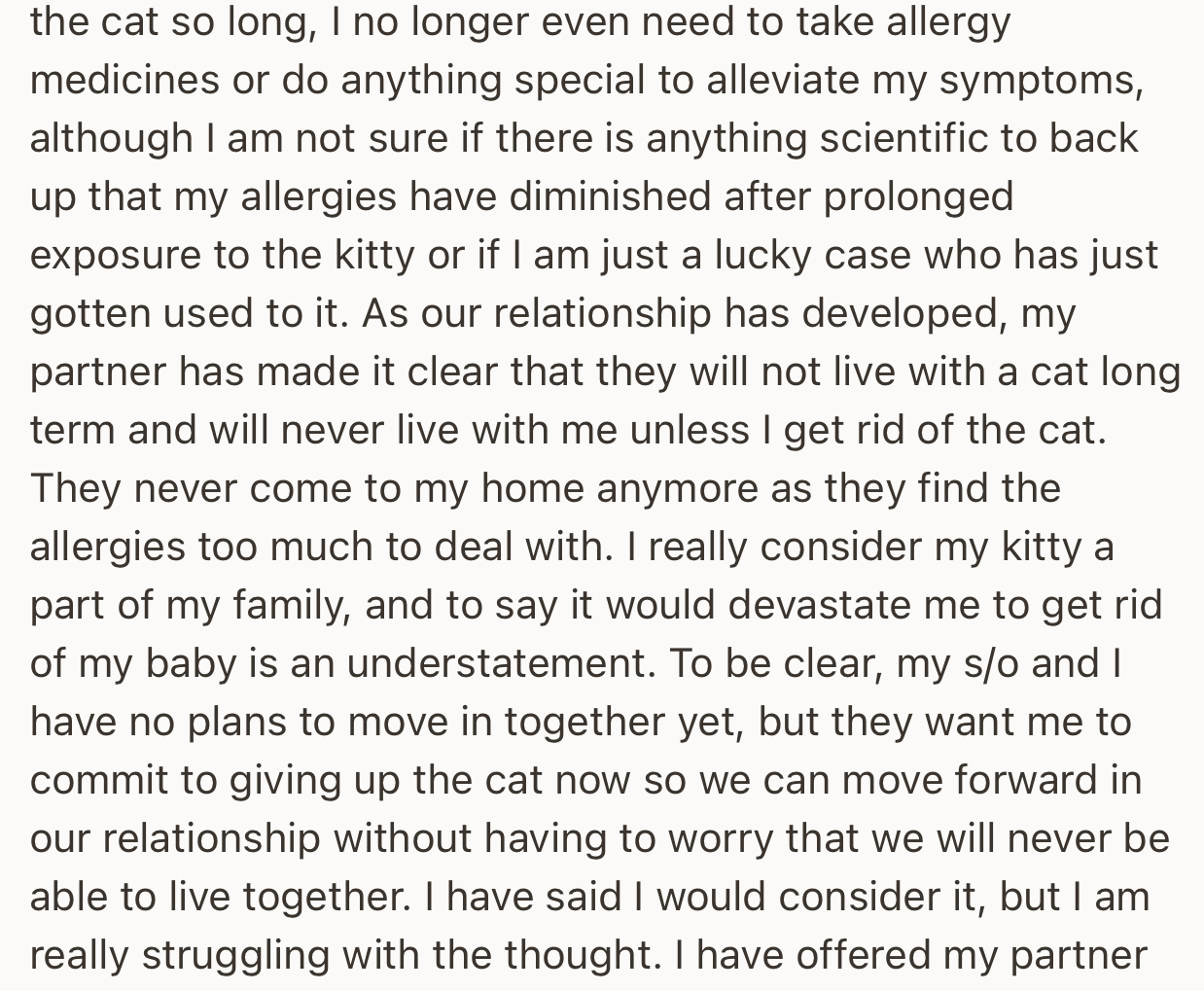
Dr. John Gottman, a renowned relationship expert, emphasizes the importance of understanding individual values when it comes to cohabitation. He states that ultimatums often indicate deeper issues, such as lack of respect for a partner's emotional attachments. According to his research, couples who engage in open discussions about their values and boundaries tend to have more successful relationships.
Gottman suggests that rather than issuing ultimatums, partners should explore each other's feelings about pets and the potential compromises they can make. This approach fosters empathy and collaboration, essential for building a strong foundation.
It's crucial to understand that choosing between a partner and a pet can lead to long-term resentment. Relationship dynamics often shift when one person feels forced to sacrifice something significant. Experts recommend considering professional mediation, as it can help facilitate more constructive discussions. Engaging a neutral third party often allows couples to express their feelings without escalating conflicts.
Therapists recommend setting aside time for regular check-ins to discuss evolving feelings about each other’s needs and expectations, ensuring that both partners feel prioritized in the relationship.
OP has offered different solutions in order to change their partner's mind, all to no avail
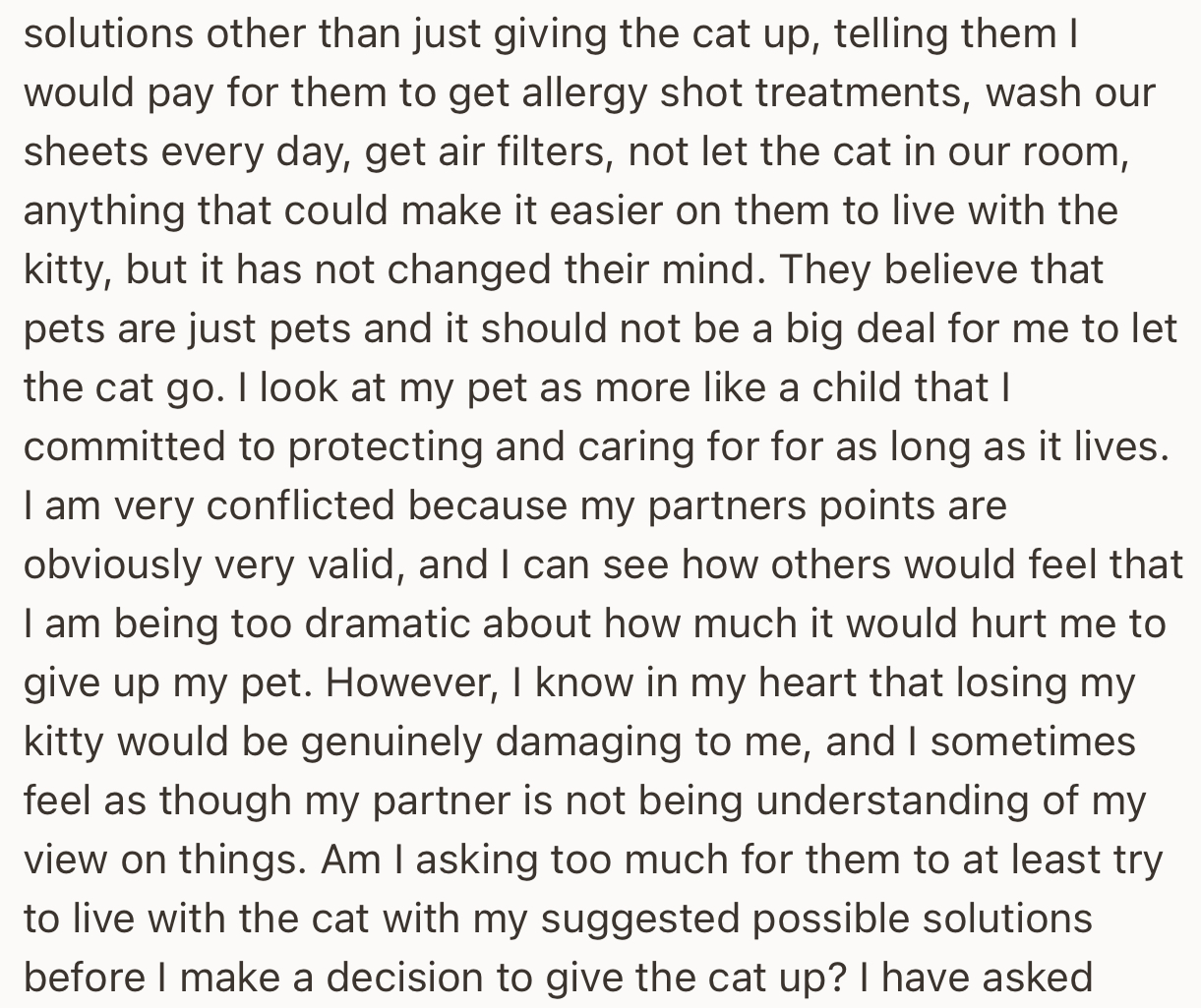
OP has sought advice from close friends, and their mixed opinions have left them confused about how to solve this
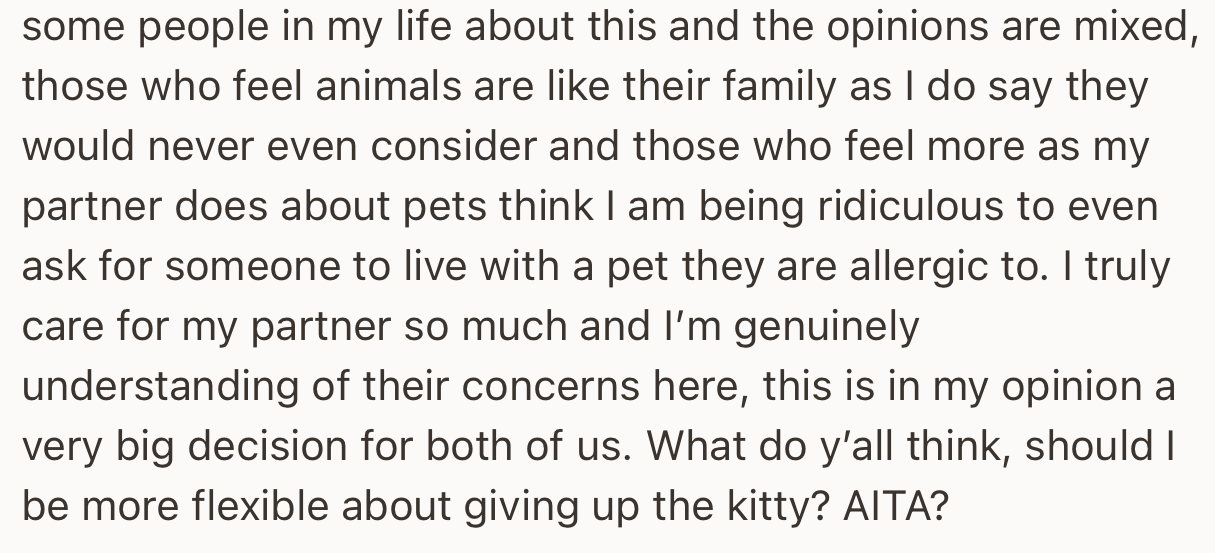
We gathered some interesting comments from Netizens

Navigating Relationship Ultimatums
Relationship experts note that ultimatums can create significant pressure and resentment. According to Dr. Sue Johnson, a pioneer in couples therapy, such demands often stem from underlying insecurities or fears. She encourages individuals facing these dilemmas to engage in honest conversations about their emotions and needs. By clarifying motivations behind the ultimatum, both partners can better understand each other’s perspectives.
Johnson recommends utilizing 'I' statements to express feelings without placing blame. This method can lead to more productive discussions and potential resolutions.
“You’re not even at the point of considering living together and he wants you to do something so drastic?”
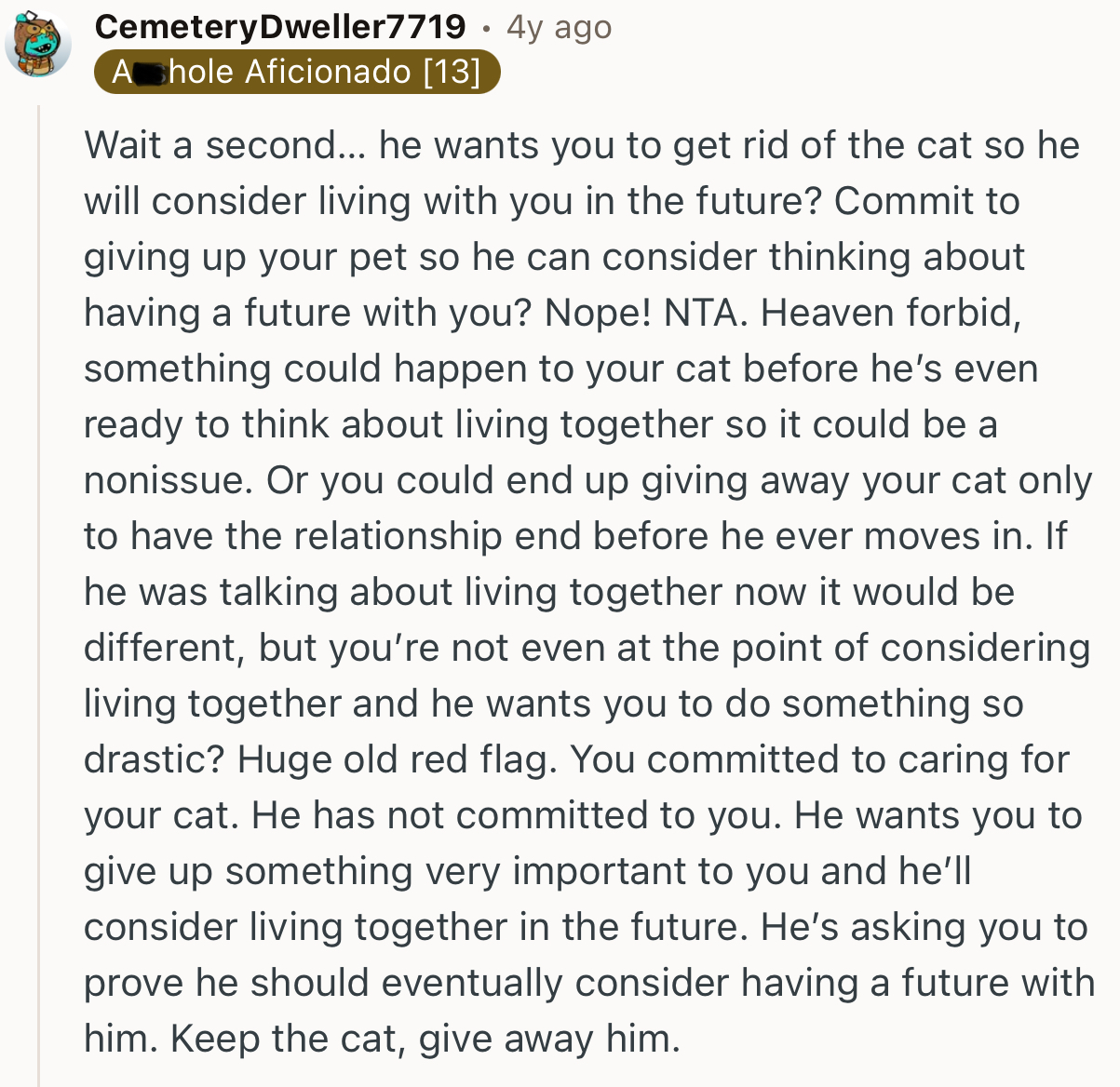
“NTA. that cat is your family and you are the only family that the cat has, it is not just a pet.”
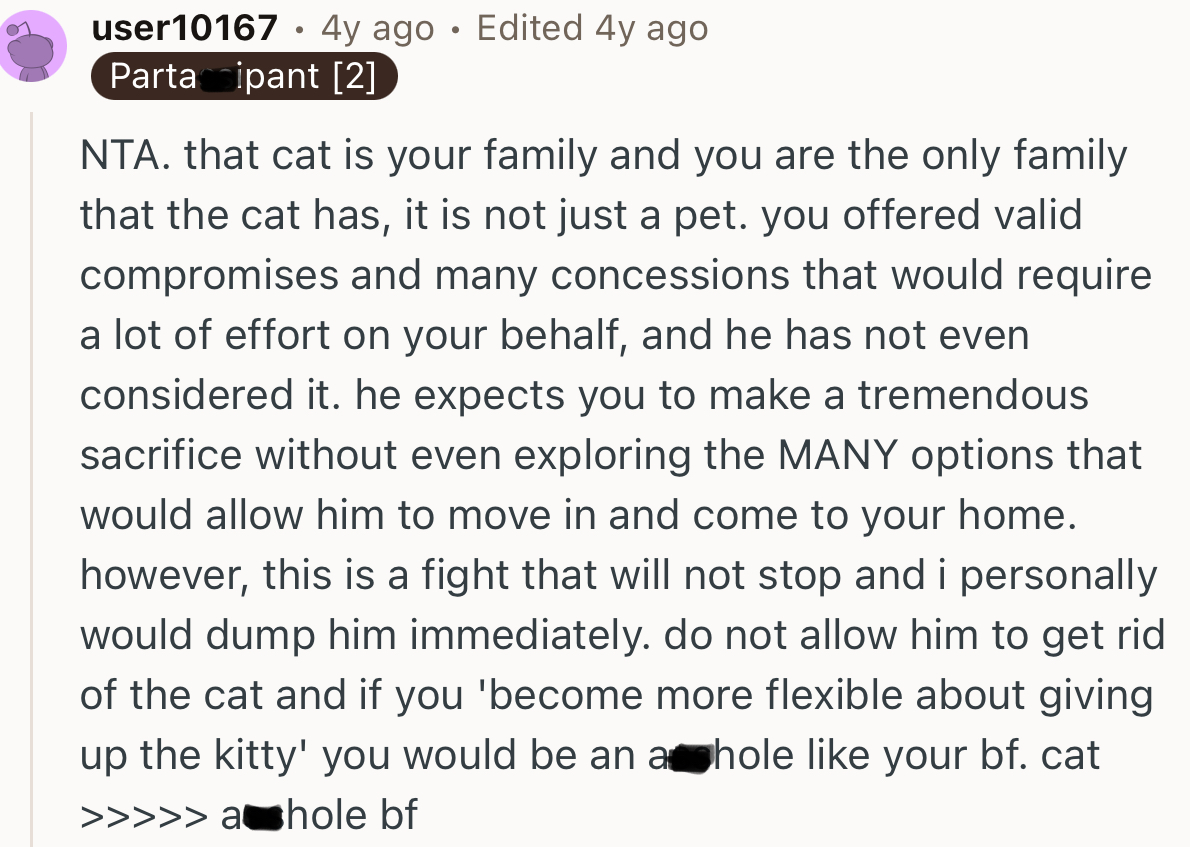
“To me this looks like a giant red flag and a dealbreaker.”
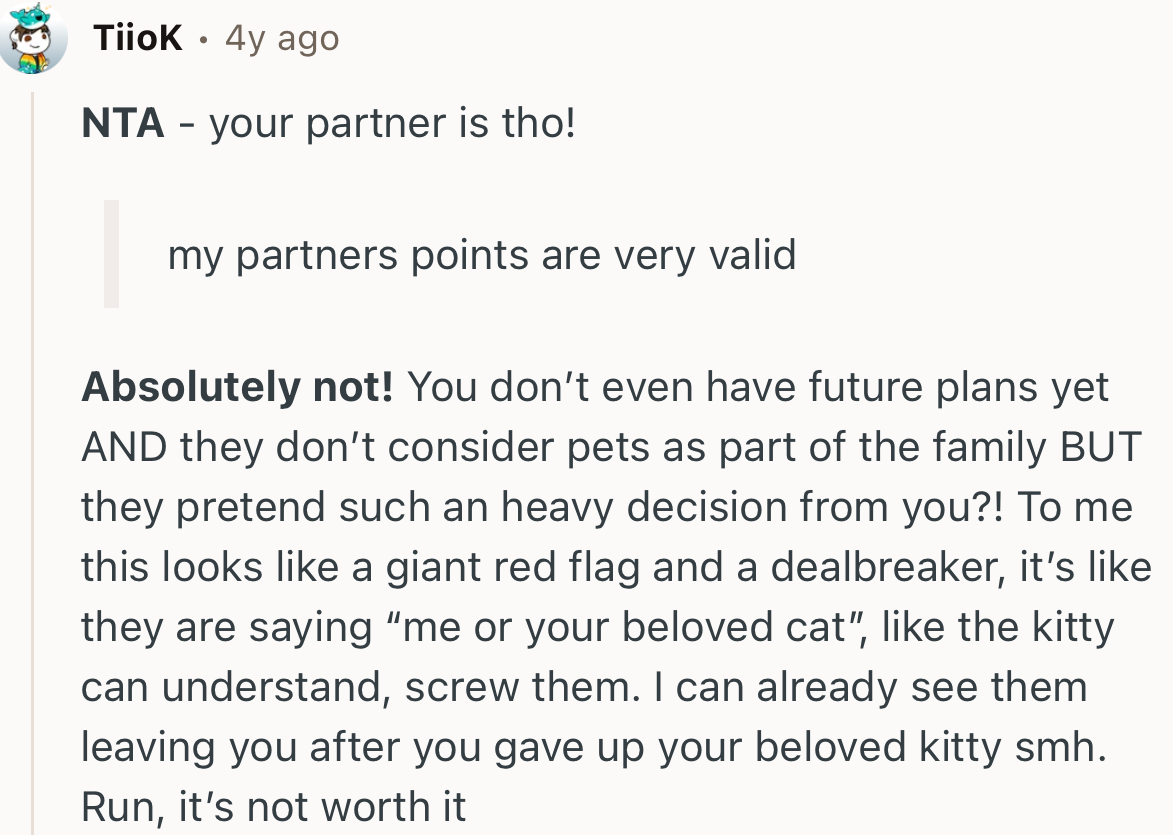
Dr. Angela Duckworth, a psychologist known for her work on grit and resilience, highlights how attachment to pets can reflect deeper emotional needs. In her research, she explains that pets offer companionship and unconditional love, often filling voids left by human relationships. Therefore, asking someone to give up a pet can feel like a rejection of a vital part of their identity.
Duckworth suggests that partners should approach this matter with sensitivity, recognizing the emotional weight behind pet ownership. Encouraging mutual understanding can create a healthier dialogue about living arrangements and emotional support.
“NTA, what are they going to demand you give up next? Friends? Family? A job?”

“Why would anyone who can’t live with cats even consider dating a cat owner?”
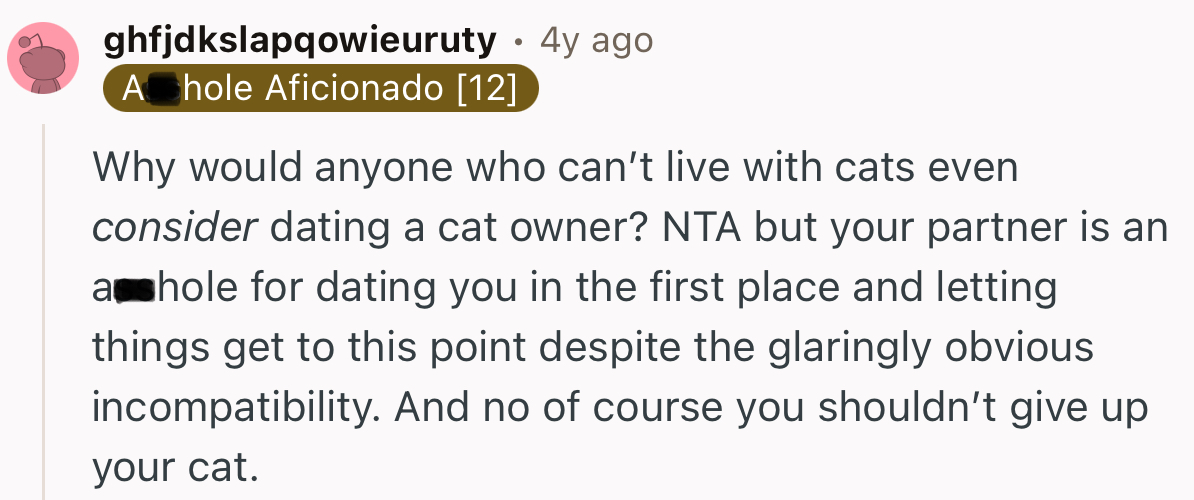
“I’d never give up an animal to continue a relationship.”
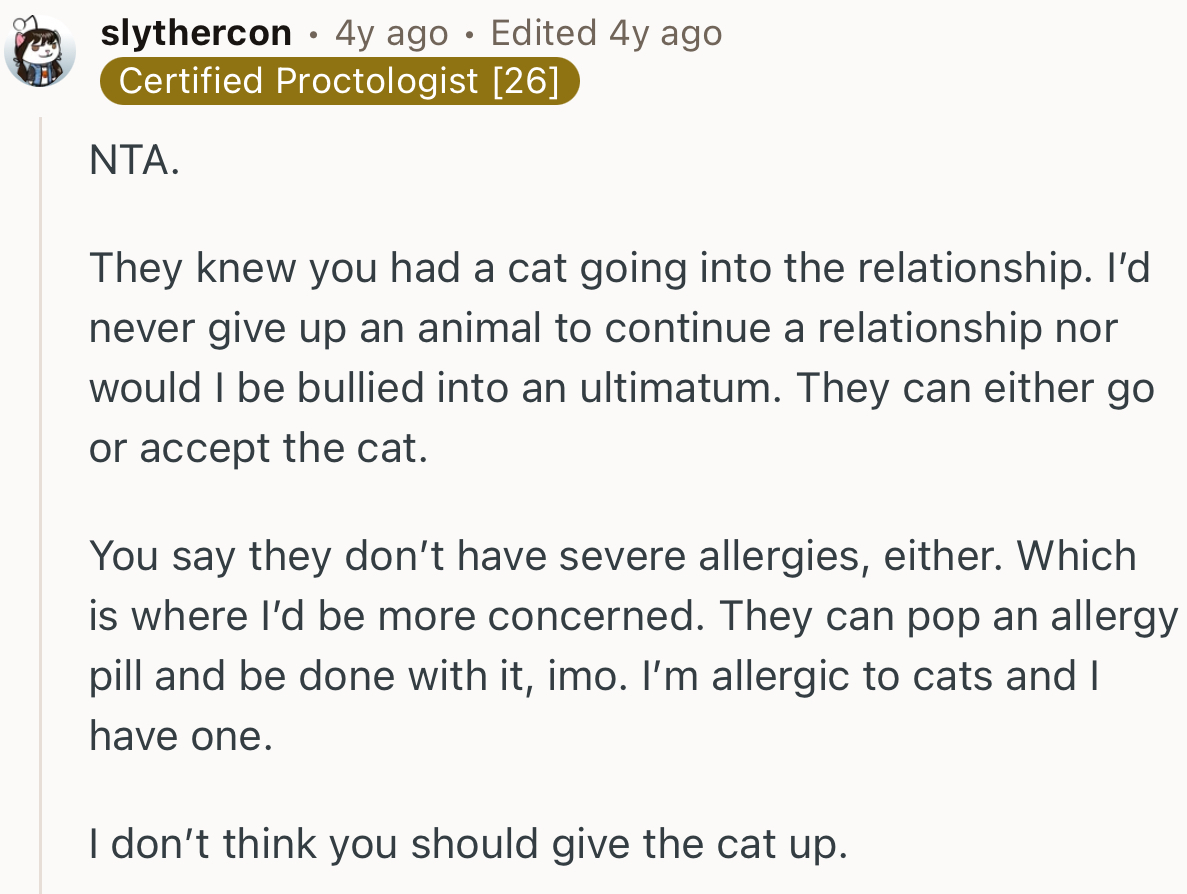
Finding Compromise
To navigate conflicts like these, experts recommend exploring compromises. Dr. Terri Orbuch, a relationship researcher, suggests creating a 'relationship agreement' where both partners discuss their priorities and establish boundaries together. This collaborative approach can help in finding solutions that respect both the pet's place and the partner's concerns.
Orbuch emphasizes that successful relationships thrive on negotiation—not on demands. By fostering an environment where both partners feel heard, they can work toward a living arrangement that accommodates their shared lives and individual needs.
“Don't let them guilt you into giving up your cat. Something like that can breed resentment.”
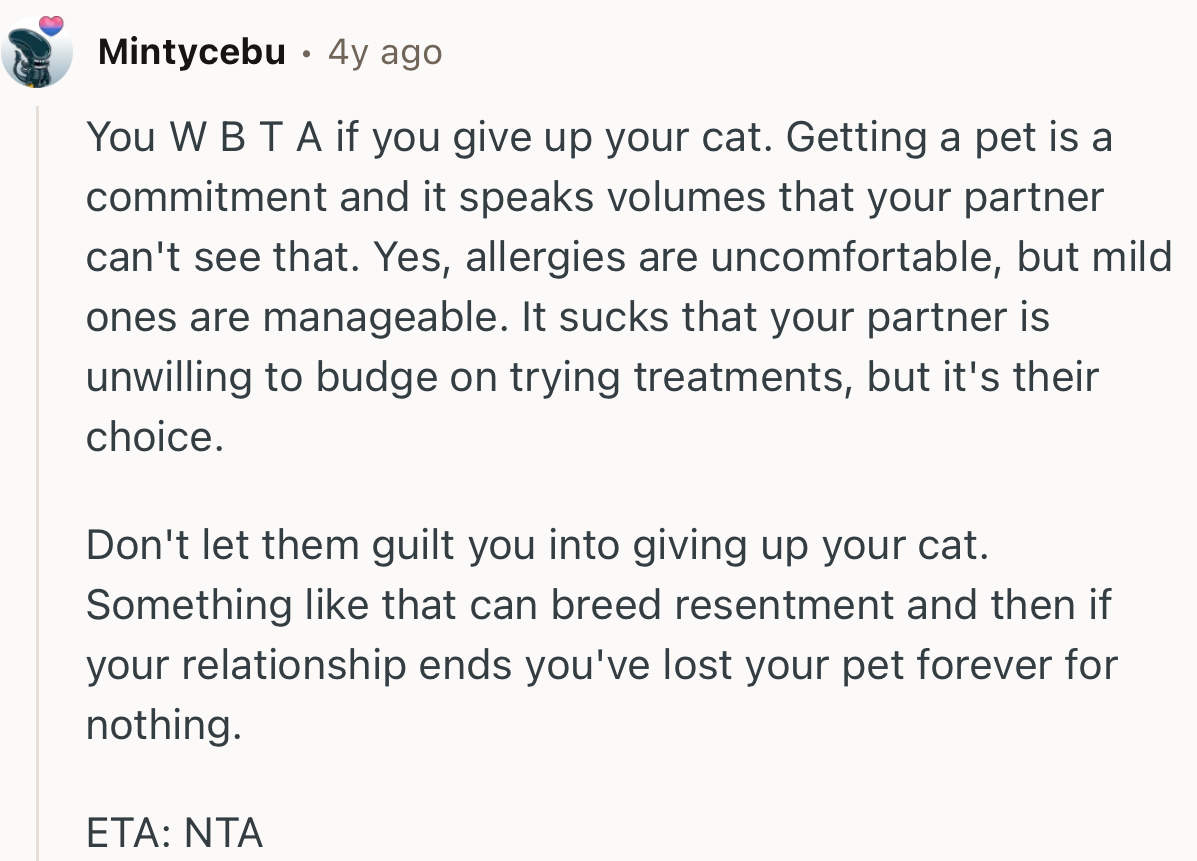
This is fundamentally about different views on what commitment means and who should compromise.
Both are reasonable positions, but they’re incompatible unless one person shifts.
At some point, one of them has to decide whether the relationship is worth what they’re being asked to give up, or whether it isn’t.
What’s your take on this situation? Let us know in the comments.
Expert Opinion
This situation really highlights how deeply personal attachments can influence our decisions and priorities. For OP, the cat symbolizes not just companionship but a significant emotional investment, while their partner's ultimatum may stem from a fundamental belief in what a relationship should look like—often rooted in their own experiences and priorities. Ultimately, it reveals the clash between different values: one person’s view of family as inclusive of pets versus another’s perspective that sees pets as expendable, showing how critical communication and compromise are in relationships.Psychological Framework & Solutions
The interplay between personal values and relationship demands can significantly affect emotional well-being. Research illustrates that successful partnerships often hinge on effective communication and mutual respect. As Dr. John Gottman suggests, addressing underlying issues rather than issuing ultimatums can lead to healthier resolutions. Engaging in open dialogue about priorities, especially concerning pets, helps build empathy and understanding.
Ultimately, fostering a collaborative approach can not only solve immediate dilemmas but also strengthen the relationship for the long term. Balancing personal attachments with partnership needs is vital for a harmonious life together.



